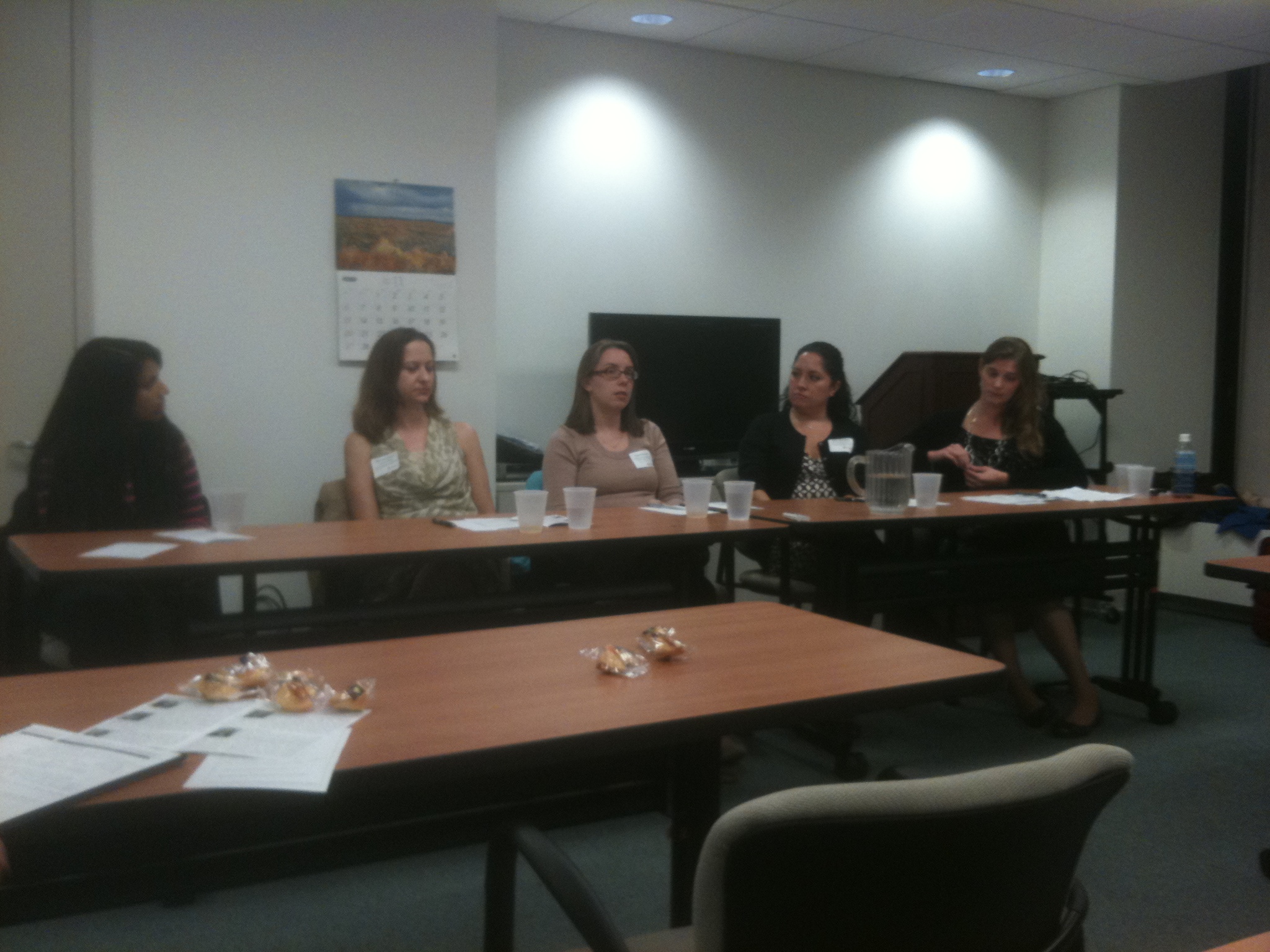Carolyn Brooks (Ishikawa-ken, Kanazawa, 2006-11) is co-author of the blog MadSilence–a cross-cultural blog written with her father–and a current culture/education related job-seeker in the NY area available for full-time or consulting work.

Industry Experts: Pam Kavalam, Shannan Spisak, Clara Solomon, Jillian Rodriguez and Katrina Barnas
Update: Click below to listen to a recording of the panel discussion.
Monday found about 15 JET alums meeting on the 20th floor of 3 Park Avenue, current home of the New York branch of CLAIR (The Council of Local Authorities for International Relations, aka the “Japan Local Government Center”). Gathered over jasmine tea and Thai finger food, JETAANY presented a chance for job-seekers to talk to JET alums (and a few non-alums) who currently work in the worlds of higher education and exchange programs. The five panelists included Pam Kavalam (Shiga-ken), a student advisor at NYU’s Wagner School, Clara Solomon (Tottori-ken), Director of Counseling and Career Development at NYU’s School of Law, Katrina Barnas (Chiba-ken), Associate Director at the Institute of International Business at Columbia Business School, Shannan Spisak (Kanagawa-ken), Program Officer at the Institute of International Education, and Jillian Rodriguez, who works for the Program of Financial Studies at Columbia Busies school.
Amber Liang (Kochi-ken), herself a Senior Programs Coordinator for the International House at Columbia, moderated the forum with a series of questions that laid bare the realities of working in the higher ed world. The panelists explained how they got into the field, the pros and cons of their job, the education requirements needed to work in a college or university, and where they thought the higher ed industry would be in five years.
While all the panelists had very different jobs and fell into the industry in different ways, there were a lot of things they agreed on. First, higher ed hiring is slow! Don’t be discouraged if you apply and don’t hear back for months. Second, having a Masters degree isn’t required to start at an entry-level position, but people will expect you to start one while you work there, especially of your institution offers free classes or tuition benefits. And even if you don’t get hired for the job that you apply for, many resumes are shared internally, so put your best foot forward and apply anyway! Third, there are good opportunities for mobility in higher ed offices. Starting in administration is a good way to start, as long as you don’t stay there too long. Learning more about the institution and the other offices will give you a chance to move to different, and possibly higher, positions. The one downside being that while you may move up, your paycheck might not.
Lastly, as for the future of higher ed jobs: they aren’t going anywhere in the near future, however free classes for employees or benefits are likely to be reduced or cut because of budget constraints. It’s important to think carefully about the benefits other than money that you can gain working in higher ed. If you want to earn a Master’s while working, it’s an excellent opportunity, but if you want to make a fortune it might not be your cup of tea!
Hearing the stories of our sempai was a truly helpful and inspiring experience. A lot of us are struggling in the job market at the moment, and it’s events like these that give us a glimpse of the struggle our successful friends have had, and the gumption to keep on trying our best!


one comment so far...
[…] check out my coverage of JETAA’s International Education and Exchange Industry Panel over at JetWit if you’re interested in hearing some great advice about finding a job in the higher education […]